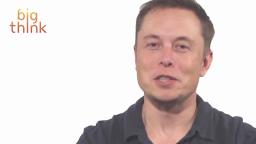Videos
All Stories
People hate mathematics because they fear and don’t understand it. Mathematician Edward Frenkel envisions a world where that’s no longer an issue.
▸
4 min
—
with
Money is one of the hardest things to talk about in a family. Bruce Feiler offers tips for how to facilitate financial conversation with your children.
▸
5 min
—
with
Happy families play together. That’s the basis of why it’s important to travel together. Author Bruce Feiler walks through the best ways for families to explore their world without succumbing to stress.
▸
3 min
—
with
All families fight — it’s just a fact of life. The highest functioning families are the ones that manage conflict best.
▸
4 min
—
with
Research shows that eating together brings a family closer and helps children develop. The problem is many Americans don’t do it.
▸
6 min
—
with
Happy families combat the stress of the modern age by always adapting. The system out of which this adaptation occurs is the weekly family meeting.
▸
6 min
—
with
Author Bruce Feiler lists the three major family shifts of the past generation and explains how exploring these shifts led him to write his latest book.
▸
4 min
—
with
Lawrence H. Summers leads a six-part workshop on employing rational, data-driven thinking to make complex decisions.
▸
2 min
—
with
Author and entrepreneur Andrew Keen argues that the free business model employed by Google and Facebook is “the original sin” of the Internet and that it’s corrupted everything around it.
▸
2 min
—
with
Acclaimed psychiatrist Bessel van der Kolk explores his field’s long, complex, and stubborn history with traumatic experiences.
▸
4 min
—
with
Kip Tindell, CEO of the Container Store, explains the secret to maintaining honor and integrity while also being a top-notch salesperson.
▸
5 min
—
with
Elon Musk is the ambitious founder and CEO of SpaceX, a private company that has won more launch contracts than anyone else in the launch business. In this lesson excerpt, Musk explains his approach to innovation in the space race. The full lesson, available on Big Think+, offers strategies for identifying an industry worthy of disruption.
▸
1 min
—
with
Composer Peter Baumann examines the mind’s overzealous thirst for information and how anyone can calm their attention.
▸
4 min
—
with
Peter Baumann explains the pervasiveness and usefulness of bias in human cognition.
▸
6 min
—
with
Keats explains how he combined string theory with San Francisco real estate to explore the relationships between paradoxical concepts.
▸
10 min
—
with
Keats explains how marriage can be treated as a metaphor by explaining the process by which two people can become married not by government definition, but by a law of nature, thanks to advances in quantum physics.
▸
9 min
—
with
Keats explains how a thought experiment in which he attempts to genetically engineer God allowed him to create a situation in which science and religion became compatible.
▸
11 min
—
with
Keats explains an experiment in which he opened a restaurant for plants and how it helped spur an exploration of cuisine as cultural trademark.
▸
8 min
—
with
The worth thing to ever happen to us, says Jonathon Keats, was when we stopped being children. Fortunately, he explains (by way of honeybees) that it’s possible to re-enter that space of precociousness and wonder.
▸
8 min
—
with
Jonathon Keats introduces his workshop on experimental philosophy by listing the rules and lessons he’s developed over the years.
▸
3 min
—
with
Tony Robbins, author of the new book “Money: Master the Game,” draws on his research with industry leaders to help new investors become acquainted with the basics.
▸
8 min
—
with
Andrew McAfee of the MIT Sloan School of Management discusses the ways in which automation threatens the jobs of tax preparers and lawyers.
▸
4 min
—
with
Author and TV host Leon Logothetis shares an inspiring story from his world travels about a homeless man who welcomed him with an open heart.
▸
2 min
—
with
Author and entrepreneur Andrew Keen points to Uber as an example of an unregulated internet innovation wreaking havoc on customers, communities, and even its own employees.
▸
4 min
—
with
The legendary biologist talks about ultimate biology breakthroughs we can expect in the next several decades and how the creation of artificial life, coupled with the advancement of artificial intelligence, will change the human race.
▸
6 min
—
with
Professor Stephen Post runs through the many reasons why it’s beneficial to practice forgiveness, not the least of which is that anger and bitterness can lead to physical toil.
▸
4 min
—
with
Biologist Edward O. Wilson takes us through several natural stimuli that humans don’t understand yet are used by various animals to navigate and communicate within communities.
▸
7 min
—
with
Dr. Bessel van der Kolk, one of the world’s foremost psychiatrists specializing in PTSD, explains the disorder’s many effects and symptoms.
▸
7 min
—
with
When cartoons depicting the prophet Muhammad appeared in a Danish newspaper in 2005, the government stood by the paper’s freedom to do so despite outside pressure to apologize.
▸
2 min
—
with
The biographer and author of “The Innovators” explains how innovation engenders community while predicting new ways technology will connect people.
▸
5 min
—
with





























